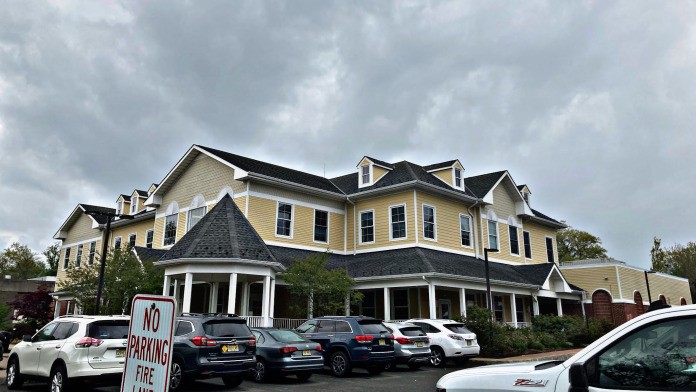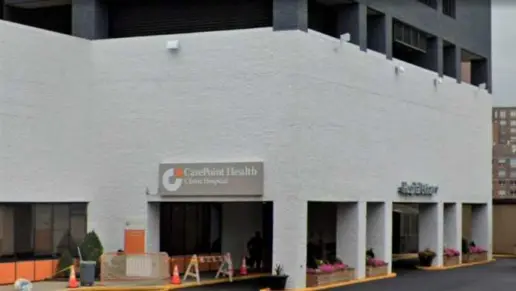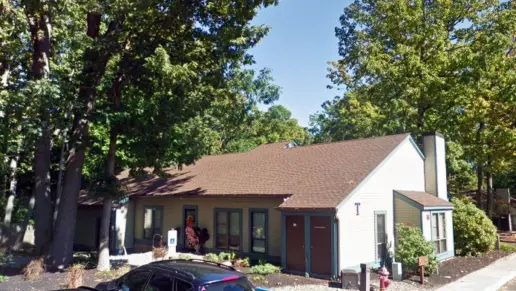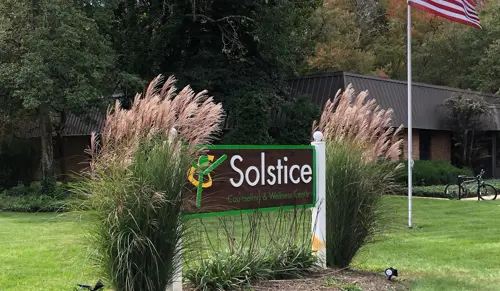I tried to speak to the doctor to explain why the patient was admitted. The doctor never returned my call. I left several messages. Therefore the admission was useless. Nothing was accomplished. This doctor assumed she had all the information she needed to treat. The patient ...
About Summit Oaks Hospital
Summit Oaks Hospital provides alcohol and drug rehab services in Summit, New Jersey. Their services are designed to treat each condition individually or concurrently through treatment tracks for dual diagnosis. Summit Oaks Hospital offers medically monitored detox, medication assisted treatment, inpatient treatment, partial hospitalization programs, intensive outpatient programs, and aftercare for young adults and adults. Specialized services are available for children and teenagers. Telehealth is an option.
Summit Oaks Hospital provides a medically supervised detox program for clients to reduce cravings and ease withdrawal symptoms. Medical professionals monitor vital signs and withdrawal symptoms to ensure the process is as comfortable as possible. Licensed clinicians may also administer FDA approved prescriptions to discourage relapse. The length of detox and the method used varies depending on what is best for each person.
The inpatient program is a short term residential transition into outpatient settings. Clients develop life skills, receive relapse prevention strategies, and enhance their emotional wellness.
Summit Oaks Hospital’s partial hospitalization program is an alternative to inpatient hospitalization. This program is best suited for those who do not need to stay overnight in the hospital. Services include group therapy, educational groups, psychiatric care, skills training, psychoeducational classes, and aftercare planning. The program meets from 10 am – 3:30 pm, Monday through Friday.
The adult psychiatric intensive outpatient program at Summit Oaks Hospital is for clients who need intensive therapy while honoring their commitments in their personal and professional life. Treatment for depression, anxiety, anger, chronic pain, mood disorders, impulsive behavior, and grief and loss will be incorporated. Medication management, group therapy, psychoeducation, and referrals upon discharge will be provided. This program meets Monday through Friday from 10 am to 1 pm. An evening session is also available.
Summit Oaks Hospital offers continual care and support for all alumni. Clients may be referred to outside facilities for specialized programs.
Summit Oaks Hospital offers self-pay and financing options. The center accepts Medicare and Medicaid and is in network with Aetna, Cigna, Horizon BlueCross/BlueShield, Oxford UBH, and TRICARE. Please verify your coverage and out of network benefits.
Facility Overview
Rehab Score
Gallery

Location
Accepted Insurance
Other Forms of Payment
Medicaid is a state based program that helps lower-income individuals and families pay for healthcare. Medicaid covers addiction treatment so those enrolled can use their coverage to pay for rehab. When a program accepts Medicaid the client often pays very little or nothing out of their own pocket.
Private insurance refers to any kind of healthcare coverage that isn't from the state or federal government. This includes individual and family plans offered by an employer or purchased from the Insurance Marketplace. Every plan will have different requirements and out of pocket costs so be sure to get the full details before you start treatment.
Self-pay involves paying for treatment out of your own pocket. You can use savings or credit, get a personal loan, or receive help from family and friends to fund your treatment. If you don't have insurance or your insurance plan doesn't cover a specific program, self-pay can help ensure you still get the care you need.
Medicare is a federal program that provides health insurance for those 65 and older. It also serves people under 65 with chronic and disabling health challenges. To use Medicare for addiction treatment you need to find a program that accepts Medicare and is in network with your plan. Out of pocket costs and preauthorization requirements vary, so always check with your provider.
Military members, veterans, and eligible dependents have access to specific insurance programs that help them get the care they need. TRICARE and VA insurance can help you access low cost or no cost addiction and mental health treatment. Programs that accept military insurance often have targeted treatment focused on the unique challenges military members, veterans, and their families face.
Addiction Treatments
Levels of Care
Treatments
The goal of treatment for alcoholism is abstinence. Those with poor social support, poor motivation, or psychiatric disorders tend to relapse within a few years of treatment. For these people, success is measured by longer periods of abstinence, reduced use of alcohol, better health, and improved social functioning. Recovery and Maintenance are usually based on 12 step programs and AA meetings.
Drug rehab in New Jersey is the process of addressing the complex issues involved with addiction. Challenges are identified and addressed through individual and group counseling. Participants learn how to manage these issues without the use of substances.
If you struggle with both acute psychiatric symptoms and substance use issues, they will provide a safe place to help stabilize both issues in a clinical setting. Their team will assist by helping you understand both issues, and managing your symptoms. The Co-Occurring Disorder program is specially designed to recognize and meet your individualized needs, and provide a place where both issues are understood. They can provide you with the skills so you can make recovery a reality
A combined mental health and substance abuse rehab has the staff and resources available to handle individuals with both mental health and substance abuse issues. It can be challenging to determine where a specific symptom stems from (a mental health issue or an issue related to substance abuse), so mental health and substance abuse professionals are helpful in detangling symptoms and keeping treatment on track.
Opioid rehabs specialize in supporting those recovering from opioid addiction. They treat those suffering from addiction to illegal opioids like heroin, as well as prescription drugs like oxycodone. These centers typically combine both physical as well as mental and emotional support to help stop addiction. Physical support often includes medical detox and subsequent medical support (including medication), and mental support includes in-depth therapy to address the underlying causes of addiction.
Programs




Clinical Services
Cognitive Behavioral Therapy (CBT) is a therapy modality that focuses on the relationship between one's thoughts, feelings, and behaviors. It is used to establish and allow for healthy responses to thoughts and feelings (instead of unhealthy responses, like using drugs or alcohol). CBT has been proven effective for recovering addicts of all kinds, and is used to strengthen a patient's own self-awareness and ability to self-regulate. CBT allows individuals to monitor their own emotional state, become more adept at communicating with others, and manage stress without needing to engage in substance abuse.
Group therapy is any therapeutic work that happens in a group (not one-on-one). There are a number of different group therapy modalities, including support groups, experiential therapy, psycho-education, and more. Group therapy involves treatment as well as processing interaction between group members.
Creativity is inherently healing, and can help those in recovery express thoughts or feelings they might not otherwise be able to. Patients are involved in journaling, poetry writing, watercolor painting, group murals, and other creative/art activities. Masters-level art therapists in their department, provide art therapy to our adolescents and adults. During the Music Expression/Songwriting Workshops, patients are guided in writing a song about their feelings, pertaining to recovery and wellness.
Experiential therapy is a form of therapy in which clients are encouraged to surface and work through subconscious issues by engaging in real-time experiences. Experiential therapy departs from traditional talk therapy by involving the body, and having clients engage in activities, movements, and physical and emotional expression. This can involve role-play or using props (which can include other people). Experiential therapy can help people process trauma, memories, and emotion quickly, deeply, and in a lasting fashion, leading to substantial and impactful healing.
In individual therapy, a patient meets one-on-one with a trained psychologist or counselor. Therapy is a pivotal part of effective substance abuse treatment, as it often covers root causes of addiction, including challenges faced by the patient in their social, family, and work/school life.
Research clearly demonstrates that recovery is far more successful and sustainable when loved ones like family members participate in rehab and substance abuse treatment. Genetic factors may be at play when it comes to drug and alcohol addiction, as well as mental health issues. Family dynamics often play a critical role in addiction triggers, and if properly educated, family members can be a strong source of support when it comes to rehabilitation.
Nicotine Replacement Therapy (NRT) is a way of getting nicotine into the bloodstream without smoking. It uses products that supply low doses of nicotine to help people stop smoking. The goal of therapy is to cut down on cravings for nicotine and ease the symptoms of nicotine withdrawal.
Amenities
-
Residential Setting
-
Private Rooms
-
Yoga Studio
Accreditations

The Joint Commission, formerly known as JCAHO, is a nonprofit organization that accredits rehab organizations and programs. Founded in 1951, the Joint Commision's mission is to improve the quality of patient care and demonstrating the quality of patient care.
Joint Commission Accreditation: Yes
Contact Information
19 Prospect Street
Summit, NJ 07902






